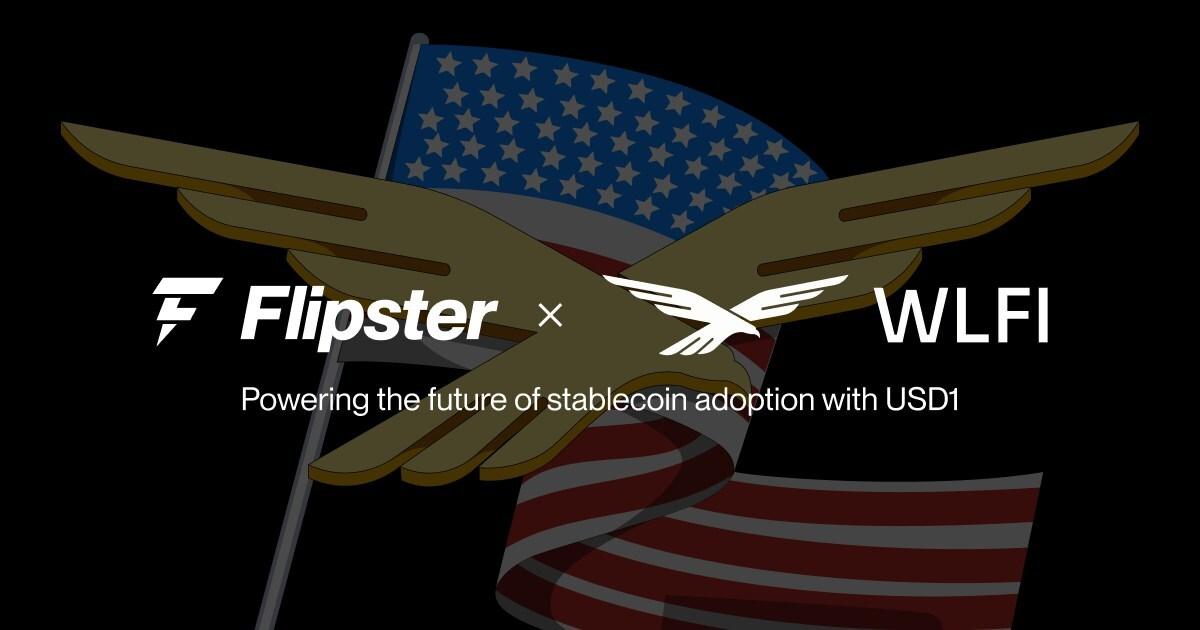Best Crypto to Buy Now As Coinbase Waives Fees for Paypal’s PYUSD

As the crypto industry continues to make inroads into traditional financial systems, one of the biggest exchanges in the world just made a bold move that could accelerate that shift. Coinbase has officially removed transaction fees for PYUSD—the PayPal-issued stablecoin—allowing users to convert the token directly into U.S. dollars without friction.
What might seem like a simple operational tweak is, in reality, a meaningful signal. This partnership between Coinbase and PayPal represents far more than reduced fees—it points to a coordinated push to bring blockchain-powered payments into the mainstream.
Coinbase and PayPal’s PYUSD Collaboration Signals a New Era
At the heart of this development lies a strategic effort to recalibrate how digital payments are made and settled. Coinbase, which has previously only extended zero-fee treatment to Circle’s USDC, is now throwing its weight behind PayPal’s PYUSD—a clear indication that stablecoin competition is heating up. This isn’t just about market share; it’s about shaping the infrastructure for everyday payments.
By making PYUSD freely convertible and removing on-chain transaction fees, Coinbase effectively lowers the barrier for both individuals and merchants to adopt blockchain-based payment systems. The integration with PayPal’s vast merchant network could quietly redirect billions in settlement volume away from legacy systems toward crypto-native rails.
It’s also a strong endorsement of stablecoins not just as trading tools, but as functional currencies. With over $238 billion already circulating in the stablecoin market, this partnership reflects how fintech incumbents and crypto-native platforms are beginning to converge. As Coinbase and PayPal explore future DeFi integrations, PYUSD may evolve into a serious contender in a space still dominated by USDC and USDT.
This move doesn’t just benefit PYUSD holders—it signifies a broader alignment. When two financial powerhouses begin dismantling the friction between fiat and crypto, the future of payments begins to look a lot more decentralized.
Best Crypto to Buy Now as Conventional Finance Joins Blockchain
Fantasy Pepe
The announcement that Coinbase will waive fees for PayPal’s PYUSD isn’t just a perk for stablecoin users—it’s a statement. One that tells us blockchain is finally being taken seriously as infrastructure for global payments. That idea resonates strongly with Fantasy Pepe, a project that’s rethinking fantasy football through the lens of AI and blockchain.
Built around predictive algorithms that simulate real-world football outcomes, Fantasy Pepe allows users to stake tokens on fantasy lineups, with rewards determined not just by luck, but by AI-validated performance insights.
Unlike traditional fantasy sports apps, which rely on outdated interfaces and centralized reward systems, Fantasy Pepe decentralizes both prediction and payout. Its token, FEPE, acts as the currency of this new ecosystem—used for staking, upgrading lineups, and earning performance-based bonuses.
What makes it timely now is how it aligns with the larger move toward programmable, stable, blockchain-based finance. As PYUSD finds a use case in instant merchant settlements, Fantasy Pepe offers a model where micro-rewards and prediction-based gaming can flourish using similar low-cost, on-chain transfers.
The integration of AI means that Fantasy Pepe isn’t just reactive to matches—it builds forecasts, giving players strategic depth. Over $200k has been raised already, with more investors pouring in to park funds into the project as soon as possible. The gap between entertainment and finance is narrowing—and Fantasy Pepe is poised to thrive in that convergence.
Solaxy
Coinbase extending zero-fee treatment to PYUSD signals a broader shift: payments and settlements are becoming blockchain-native. That same ideology is baked into Solaxy, a Layer 2 protocol built for scalability and seamless movement of assets across Ethereum and Solana ecosystems.
While traditional banks require clearance times, Solaxy enables real-time transfers, staking, and smart contract execution—features that mirror the kind of speed and efficiency PayPal is now aiming to achieve through stablecoins.
Solaxy isn’t just another L2—its foundation is purpose-built for developers who want to deploy apps with deep liquidity, efficient routing, and sustainable staking rewards. Its consensus layer incentivizes validators through a dynamic reward system, making it both fast and economically aligned with user participation. For investors, it means not just holding a token, but contributing to a constantly optimizing network.
Take a trip in the Solaxy! 🛸🪐31M Raised! 🔥 pic.twitter.com/0iTcX4cqxh
— SOLAXY (@SOLAXYTOKEN) April 21, 2025
What makes Solaxy particularly relevant right now is its role as a facilitator of payment systems that could work alongside, or even integrate, stablecoins like PYUSD. As traditional payment giants move toward chain-based settlements, they’ll need the infrastructure to support thousands of concurrent interactions per second—without incurring gas spikes or scalability issues. Solaxy provides exactly that kind of ground-level solution.
Its dual-chain strategy reduces liquidity fragmentation while ensuring composability with DeFi platforms. In a world where PYUSD can settle merchant transactions in seconds, Solaxy could serve as the technical undercurrent enabling such flows. As Web2 finance adapts to blockchain, Solaxy quietly positions itself to handle the mechanics of what comes next.
SUBBD
SUBBD is a creator-economy protocol reimagining fan monetization through Web3-native structures. If PayPal is making blockchain usable for mainstream payments, SUBBD is making it indispensable for creators.
SUBBD’s $SUBBD token fuels a permissionless platform where artists, streamers, educators, and performers build income streams without depending on intermediaries. Instead of relying on YouTube algorithms or Patreon payouts, creators earn directly via tokenized subscriptions and perks governed by smart contracts.
These contracts ensure instant access, programmable tiering, and full ownership of audience relationships. The implications are huge—particularly as stablecoins like PYUSD make peer-to-peer payments simpler and faster.
Where it gets more interesting is in the cross-over potential. As creators and audiences become more crypto-native, they’ll want payment methods that are stable yet decentralized—PYUSD and $SUBBD could coexist in this context, with PYUSD serving as an entry point and $SUBBD powering internal platform mechanics like tipping, gating, and revenue sharing.
With over $240 billion in the stablecoin market and Coinbase now openly embracing this direction, SUBBD is no longer a fringe use case—it’s a frontrunner. It tackles two converging trends: the decentralization of income and the tokenization of access. And in doing so, it redefines what financial empowerment means in the digital age.
MIND of Pepe
The recent move by Coinbase to eliminate fees on PYUSD is more than a corporate partnership—it reflects a larger systemic trend: data, money, and decision-making are all migrating to decentralized, automated systems. MIND of Pepe sits in a similar category, not by offering another meme coin, but by embodying a live AI agent built to interact, respond, and shape sentiment across crypto communities.
MIND of Pepe isn’t just a token—it’s a thinking entity. It scours social media in real time, analyzes investor mood, and provides public-facing insights on what’s trending and why. This AI isn’t locked behind an interface or dashboard.
Instead, it exists as a voice in the memecoin ecosystem, reacting to shifts, identifying patterns, and occasionally even instigating momentum. Its token, $MIND, fuels access to exclusive insights, investor signals, and AI-generated engagement tools tailored to active crypto traders.
Creators and popular crypto companies like 99Bitcoins have already featured the project in their posts and videos online, calling it a high-potential initiative worth checking out. MIND of Pepe reflects the next leap forward: a data-native, AI-first, user-facing interface that can not only transact but predict and guide.
In a world where payment rails are frictionless and AI is injected into everything from finance to fandom, MIND of Pepe’s appeal isn’t its meme—it’s its intelligence. As the lines between communication, automation, and transaction blur, this project positions itself as the digital nervous system for crypto culture. It doesn’t just exist in Web3—it thinks in it.
Conclusion
The decision by Coinbase to waive fees for PYUSD marks a definitive step in the integration of blockchain with conventional finance. As stablecoins edge closer to real-world usability and partnerships between fintech leaders and crypto platforms deepen, the conditions are rapidly aligning for wider adoption of on-chain tools across sectors.
Projects building with foresight—those rooted in utility, scalability, and engagement—are increasingly likely to benefit from this shifting tide. Options mentioned above are still in their early stages and could thus be excellent additions to one’s portfolio for the upcoming months or years.
Disclaimer: This is a sponsored article and is for informational purposes only. It does not reflect the views of Crypto Daily, nor is it intended to be used as legal, tax, investment, or financial advice.




